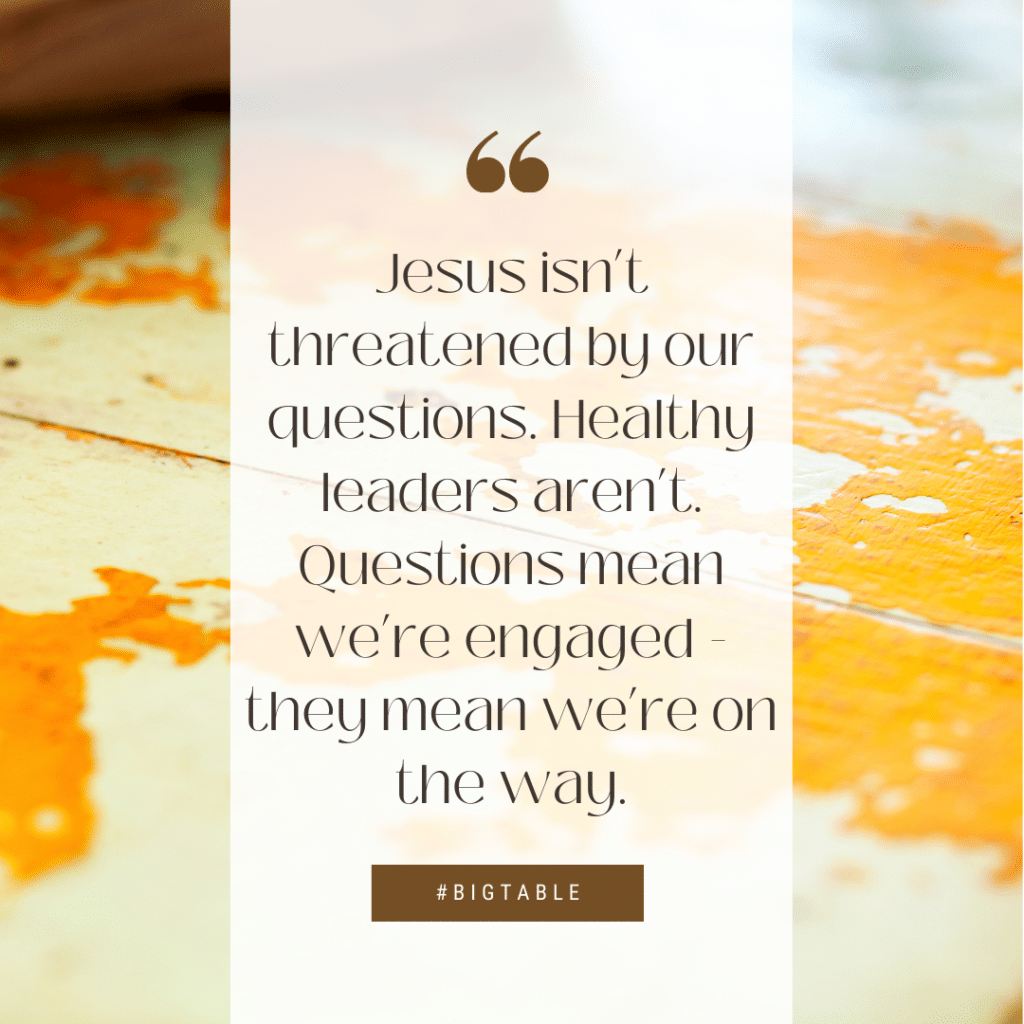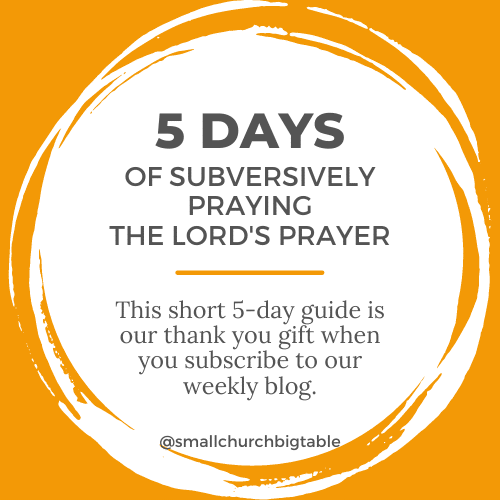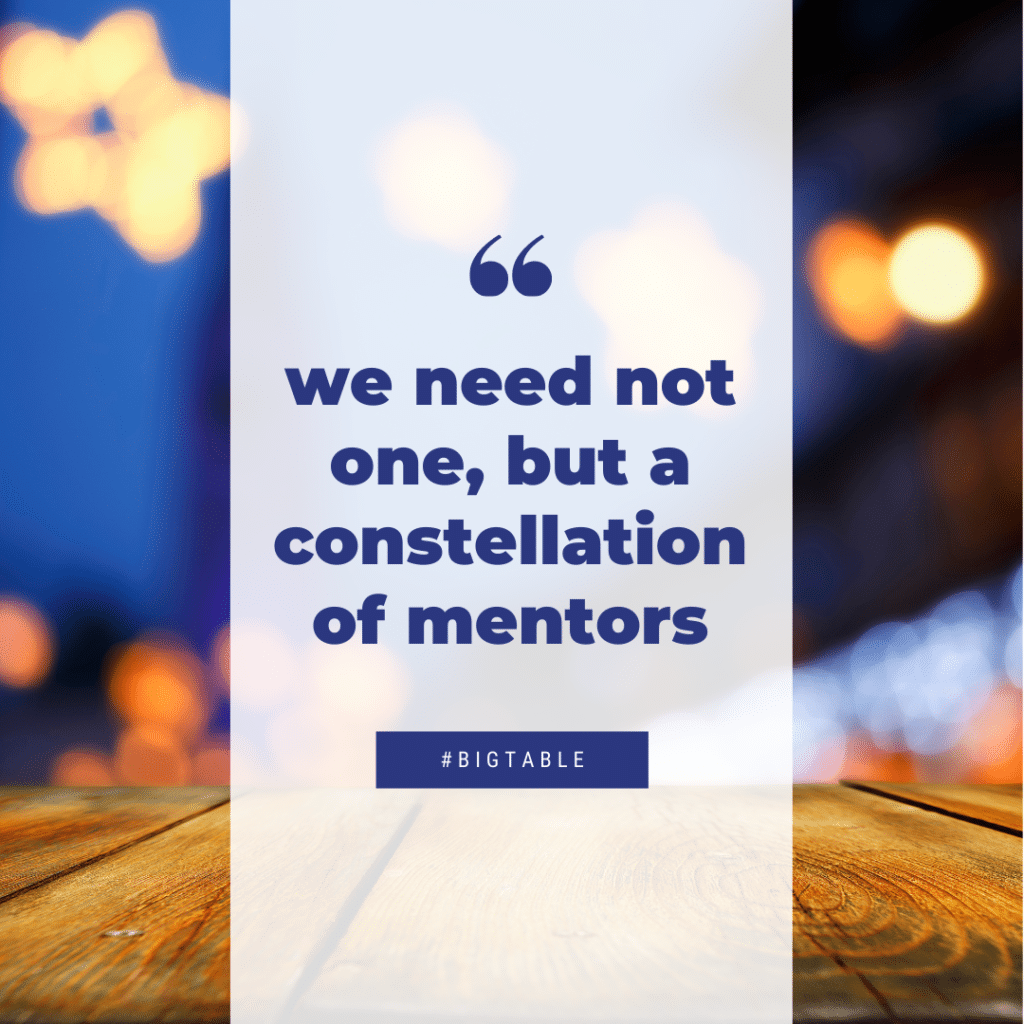Bill
A cool May morning in 2013, I stood on a literal cliff’s edge, tears streaming down my face. Staring 300 feet down at the Pacific crashing against the shoreline and finally letting some honest questions rip through me, I was terrified.
If I loosened my vice grip on the inerrancy of scripture as I’d been taught it, questioned the traditional view of homosexuality as a sin, and reconsidered a host of other convictions – would I lose Jesus in the process? Was I willing to follow Jesus whatever the cost, even if it meant my evangelical friends kicked me out of their clubs and I lost my church, even if it meant I’d no longer have that clear path forward mapped out for my life?
And then there was Jesus’s radical call to justice, which I barely even recognized at that point, and still was hiding from. As a straight, White, cis-gender male, when you begin to take off the self-protective hermeneutical blinders, the weight of your complicity in oppressive systems can just flatten you.
It’s embarrassing to admit how scared I was to lose the security of my life before deconstruction. But I know I’m not alone.
Brenna
I never fit the box of evangelicalism very well, so I can’t remember a time when I wasn’t questioning. It was painful though and rarely well received, so I kept the doubts and the sharp sense of unbelonging firmly to myself, even from myself, as much as I could. Isn’t that what a good follower of Jesus does?
Though so many of us seem to live by that rule, I don’t actually get that sense from Jesus now. In the Gospel of Mark, when his disciples come to him after he’s told the master parable of all the parables and they admit they don’t understand, Jesus pauses to capture the moment. He says, “This is it – you’ve got it! You see, this moment right here, this asking, is the secret to the kingdom of God!” (Mark 4:10). They’ve got it, because they haven’t got it, and they’re willing to admit it. Then patiently, “alone with his disciples, [Jesus] went over everything, sorting out the tangles, untying the knots.” (Mark 4:34, MSG)
This Jesus welcomes our tangles and knots, even celebrates them, like a parent joyfully watching their infant trying to walk, pushing up, taking a few unsteady steps, tumbling down again. How else will we learn, without trying, then falling? How else will we learn, without standing on that cliff, facing our deepest doubts? How else will we grow up into the fullness of all we’re meant for?
Bill
And oh, are there knots and tangles, even (especially!) among faith leaders.
When we use the word “leader,” we mean it both in its more narrow sense, people who’ve been formally identified in a certain group or organization, and also in its much wider sense, where absolutely everyone has a sphere of influence, so absolutely everyone is a leader!
Just this past week I sat with a head pastor getting hounded by elders who haven’t acted much like Jesus, a youth pastor who got curious about other religions, a queer worship pastor who questioned the shame his church’s theology imposed on him, and a different worship leader of a mega church who wearied of the commercialism his position required. And down the rabbit hole they went, “backsliding” according to some, wondering how many of their beliefs were sacred after all.
But this is not backsliding – it’s deconstruction. And deconstruction is an inevitable element of the spiritual journey, emerging when the ordered system we’ve inherited from our family and/or our faith community can no longer withstand the stressors of pain or personal doubt. Especially when they’re spiked with a toxic dose of religious hypocrisy.
Often churches and families try to stave off deconstruction by warning against the evils of doubt, by giving authoritative explanations of how suffering fits into their theological systems, or by limiting exposure to the outside world. But the mind and its questions, the heart and its feelings, the body and its sensations, the soul and its doubts are awfully hard to contain. It’s as if God made us for this… as if deconstruction isn’t the enemy, but a friend.
Brenna
Writer Anne Lamott puts it this way, passing on the wisdom a friend once shared with her: “The opposite of faith is not doubt, but certainty. Certainty is missing the point entirely. Faith includes noticing the mess, the emptiness and discomfort, and letting it be there until some light returns.”
Doubts and deconstruction create the space for a growing, transformative faith.
Perhaps that’s part of what Jesus meant when he invited us to love God with our whole selves, with our heart, soul, mind, and strength. He was welcoming all of who we are to the table, our wonderful and messy humanness – embodied identities, honest questions, valid experiences of pain, anger and grief when we sense shalom under threat. Every aspect of who we are is met at his table with compassion and encouraged into vital connection with the whole.
Jesus isn’t threatened by our questions. Healthy leaders and religious systems aren’t either. Questions mean we’re engaged – they mean we’re on the way. And as Teresa of Avila reminds us, “The whole way to heaven is heaven itself.”
Friend, your deconstruction journey is a holy one, worthy of celebration.




Love these inviting thoughts and the invitation to have the courage to be in the honesty (and messiness, when required) of life and faith. You’ve reminded me that true faith is not possible without doubt, and that whereas religion is about certainty, Christian spirituality is about trust even when we don’t have certainty. Thank you!
Have always appreciated how you create space for the tension between faith and doubt both as a pastor and a coach, Brandon.
Thank You Bill and Brenna for bravely entering this conversation that often brings about a divisiveness within Church. When I am in Palm Springs, I often attended a Foursquare Gospel Church. I knew their position and realized they were not open and affirming, but appreciated the pastors very powerful message where he led with God’s word. At one time during his sermon, he said, he found that the self-proclaimed Christian often can be the most angry and judgemental person he knew. He looked to his congregation and asked why? This conversation often brings about anger. If we could Lead With Love as Jesus Lead With Love, just maybe we could come together on this issue within the church community. Thanks again. Blessings…Rod
Lead With… Love! So good – thanks, Rod, for sharing your story.
I loved every moment of this blog and vulnerable offering. So much food for thought. Lines that made me return to myself and be present to the words on the page, “ And then there was Jesus’s radical call to justice, which I barely even recognized at that point, and still was hiding from.“
“[evangelicalism] so I can’t remember a time when I wasn’t questioning. It was painful though and rarely well received, so I kept the doubts and the sharp sense of unbelonging firmly to myself, even from myself…”
“ But this is not backsliding – it’s deconstruction”
Kristy, I receive your words as blessing as well – what a powerful phrase, to “return to myself.” Much love, friend!
Love this! I am so greatful you were both already on your deconstructing journeys when I needed a church to turn to. You both
and CCLB were there for me and the ones I love. I still have lots of doubts, questions and messy baggage, but I have always felt the presence of Christ in the atmosphere around and preaching by you both. Thank you, Brenna and Bill!
Thank you, Kevin! I feel the presence of Christ in you, too, friend, including your “doubts, questions and messy baggage.”